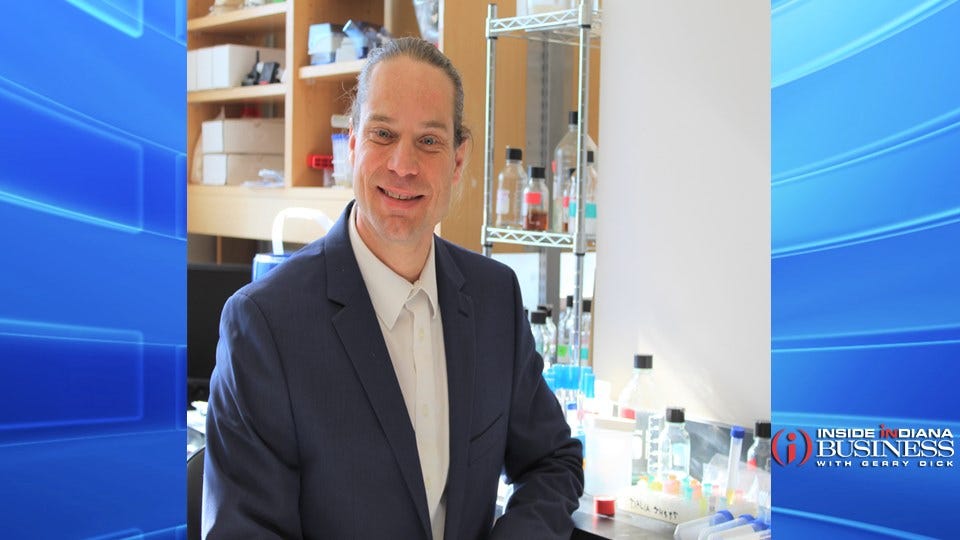IU Lands $37M Grant to Develop COVID Treatment
 Jesper Pallesen
Jesper Pallesen
Subscriber Benefit
As a subscriber you can listen to articles at work, in the car, or while you work out. Subscribe NowIndiana University is part of a consortium that has been awarded more than $37 million to develop and study antibodies to fight the virus that causes COVID-19. IU and its consortium partners, which include AstraZeneca, the Wistar Institute, Inovio and the University of Pennsylvania, say they will use the grant funding to move from the design stage to human phase II clinical trials in the next two years.
The university says the technology works “by providing the genetic information the body needs to produce its own antibodies against a bacteria or virus, such as SARS-CoV-2.”
Jesper Pallesen, assistant professor of molecular and cellular biochemistry in the College of Arts and Sciences, will lead the study on IU’s behalf. IU says Pallesen and his team will use cryo-electron microscopy, which allows the team to see every atom and how proteins and viruses are built.
“I am really excited to help advance DNA-based therapeutics and vaccines against SARS-CoV-2 and beyond,” Pallesen said. “The distribution advantages of DNA technologies are indisputable, and we have the potential to bring therapeutics and vaccines to people much faster and — perhaps most importantly — to parts of the world that are currently very challenging to service.”
The research team was awarded the grant from the Defense Advanced Research Projects Agency and the Joint Program Executive Office for Chemical, Biological, Radiological and Nuclear Defense, which are both part of the United States Department of Defense.
“My lab specializes in structure-guided vaccine and therapeutics design,” said Pallesen. “As part of the consortium, we’ll be evaluating how and where our DMAbs bind to the surface proteins of SARS-CoV-2.”
IU says Pallesen and his team are planning to use their technology to analyze all samples of the DNA-encoded monoclonal antibodies, or DMAbs, produced by the consortium starting as early as January.
